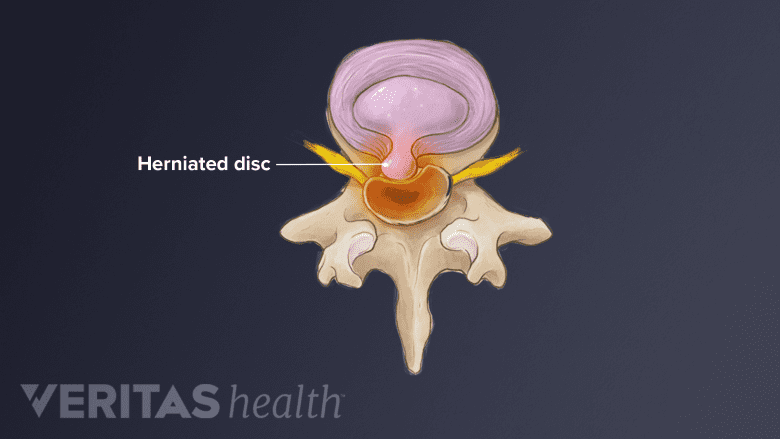Running is an activity that involves repetitive stress and impact, sometimes for a long duration. People who have an underlying lower back problem can find running or jogging makes their pain worse or leads to additional types of pain, such as sciatica (leg pain, weakness, or numbness).
When running or jogging leads to more or additional back pain, it is important to know when to seek treatment and what types of treatment to expect.
In This Article:
Common Lower Back Injuries for Runners
Runners with back injuries experience muscle spasms and localized pain in the lower back.
Lower back pain often comes on quickly, after bending or lifting the wrong way, or perhaps after running too far before warming up.
Lower back pain comes in many different varieties, the most benign of which is muscular strains and pains. It is characterized by lower back muscle spasm and pain that is centralized in the lower back. This type of pain does not travel into the buttock or legs (radiating pain is known as sciatica, or radiculopathy).
Self-Care for Low Back Muscle Strain
NSAIDs reduce inflammation and alleviate back pain with their anti-inflammatory effects.
Low back pain brought on by muscle strain is best treated by a variety of self care techniques, and perhaps stopping the running for a week or so as those symptoms resolve. Effective ways to relieve lower back pain caused by muscle strain usually include one or a combination of the following:
- A short period of rest (one or two days) if the pain is severe
- Gentle stretching
- Ice or cold packs, applied for 10 to 20 minutes at a time
- Heat therapy or moist heat
- Over the counter pain medication, such as acetaminophen (e.g. Tylenol)
- Over-the-counter anti-inflammatory medication (e.g. ibuprofen, naprosyn)
This type of pain will often improve over the course of one to three weeks just by activity restriction.
- For more in-depth information, see The P.R.I.C.E. Protocol Principles on Sports-health.com.
Running and Damaged Discs in the Back
Running impacts the spine and discs, potentially worsening existing damage.
A more problematic form of lower back pain for runners is low back pain related to structural problems in the lower back, such as:
The disc is the shock absorber of the lower back. When running or jogging, the repetitive impact on the spine puts stress on the disc. If one already has a damaged disc, the repetitive stress that can lead to increasing symptoms. Runners who find that they have consistent and steady lower back pain after a workout should consider getting a thorough evaluation by a spine physician.
- For more in-depth information, see Common Running Injuries: Back Pain on Sports-health.com.






